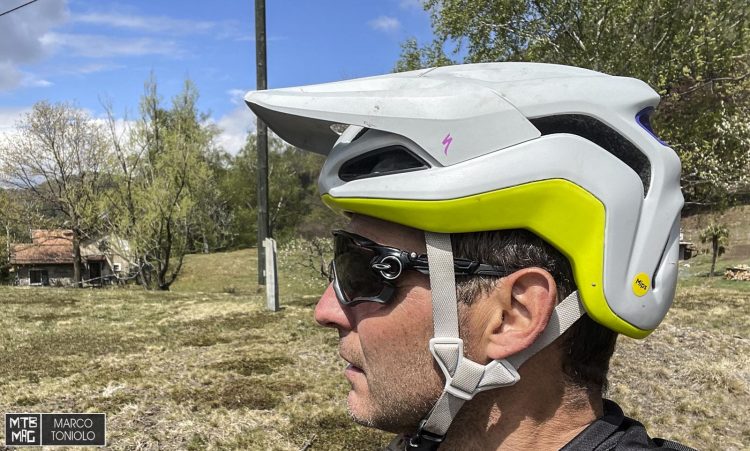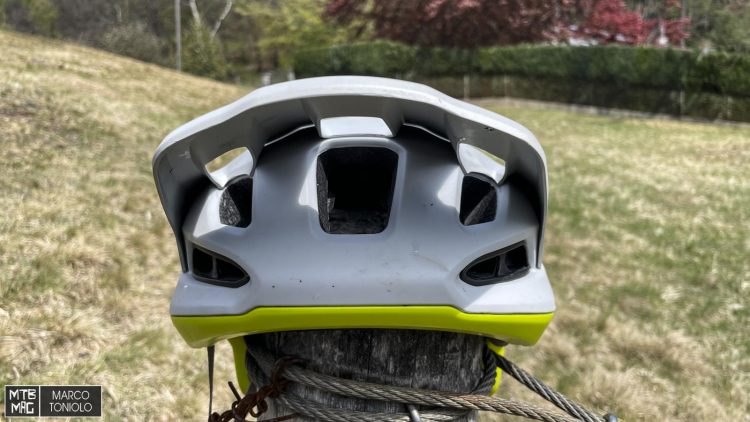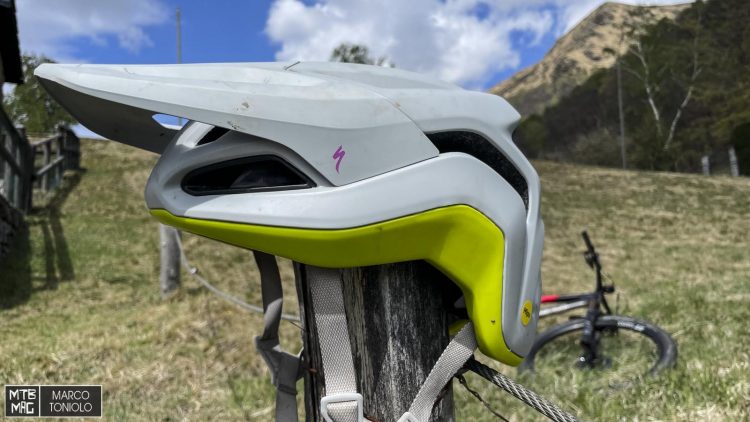[Tested] Specialized Ambush 2 Helmet
A little over a month ago Specialized released their new Ambush 2 helmet. After more than a month of regular use, here is the review…
Specialized Ambush 2 helmet details
- Patented aramid-reinforced skeleton provides internal EPS support.
- Patented Energy Optimized Multi-Density EPS construction helps to manage impact energy.
- Mindset 360 fit system provides a secure, customizable fit with 360-degree tension adjustment, five height positions, and an integrated dial for easy, on-the-fly adjustments.
- Micro indexing visor allows for a wide range of fast, secure on-trail adjustments, as well as convenient goggle stowage.
- 4th Dimension Cooling System with massive vents, internal Cross-Channels, and aligned exhaust ports increases airflow to keep you cool.
- Low profile in-moulded shell with smooth, snag-free exterior shape.
- Extended coverage for added protection and durability.
- Lightweight, quick-drying liner features a Gutter Action Brow that channels moisture away from eyes.
- Tri-Fix web splitter for improved comfort and ease of strap adjustments.
- MIPS-equipped.
- Integrated ANGI crash sensor.
- Tri-Fix web splitter for improved comfort and ease of strap adjustments.
- Price: 194€
On the trail
I must confess that I was a fan of the Ambush 1, which I had tested seven years ago. The feature I liked the most was the comfortable fit, suitable for long days in the saddle, with no annoying contact points. Specialized continues this tradition with the Ambush 2, which is also the reason why I can provide a full review just six weeks after presentation, which is rather quick for our website. Being so comfortable and perfect for the shape of my head, it has become my favorite helmet as of late.
The most frequently asked question, six weeks ago, was the question about the visor. In fact it is large and above all very high in placement compared to the helmet. The answer is no, it cannot be adjusted. The position you see in the photo is fixed, and has a very specific reason, according to Specialized: to favor ventilation. In addition of course to leave space for the possibility of goggles.
The disadvantages that I could detect of this choice are, apart from aesthetics which are a personal thing, the fact that the visor is so high that it does not cast a shadow on the eyes when you have the sun on your face and above all that, when you go fast, the visor tends to act as a sail, lifting the helmet. The solution to the second problem is simple: keep your head tilted slightly forward, so as not to let the visor catch wind.
Regarding the first problem, it didn’t bother me much because I usually ride with Oakley Jawbreaker photochromic glasses. And here we come to a feature of the Ambush 2 that I really liked: the system for fixing the glasses to the helmet.
The two outermost slots are specially designed to hold the glasses arms in place and above all they are very easy to find when you are pedaling and want to take off your glasses. The hold is very solid, preventing them from falling out.
Those who follow the Mag will already know that I sweat a lot on my head, and this spring period was not particularly cool. The ventilation is good, but nevertheless I sweated profusely in the Ambush 2. On the other hand, the uphill speeds with the mountain bike are low and the cooling effect that benefits those who use a road bike is almost completely missing.
For fans of “squeezing” the sweat off your head, it falls in the center of the forehead, so it is necessary to take off the glasses to prevent the drops from going on the lenses.
Gone are the days when MIPS was a layer of yellow plastic that reduced the flow of air inside the helmet. As you can see from the photo above, the MIPS is not even visible, hidden by the padding. Pads that are comfortable while remaining thin. It goes without saying that they are anti-septic, that is, that they do not smell bad after a few rides.
The tightening wheel, being placed inside the rear shell, works in the opposite direction to what you are used to: turning it clockwise widens the closure, and vice versa for when you want to tighten. You have to get used to it, but this feature was also inherited from the old Ambush.
For a helmet in this price range I would have expected a Fidlock magnetic closure instead of the classic plastic buckle. Lastly, the three point straps are not adjustable in the distance from the ears.
The post [Tested] Specialized Ambush 2 Helmet appeared first on MTB-MAG.COM.







